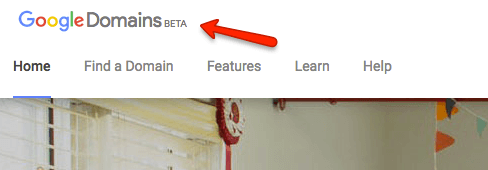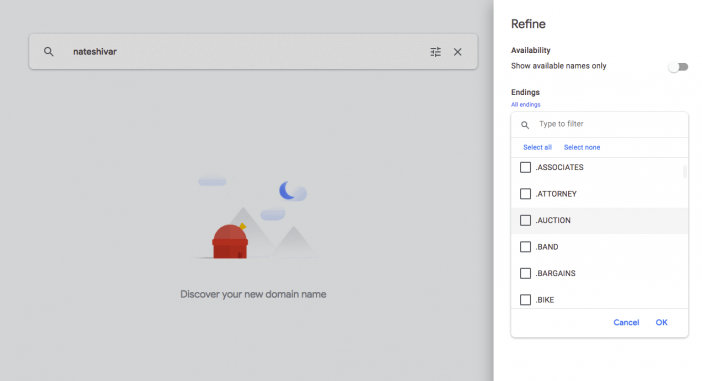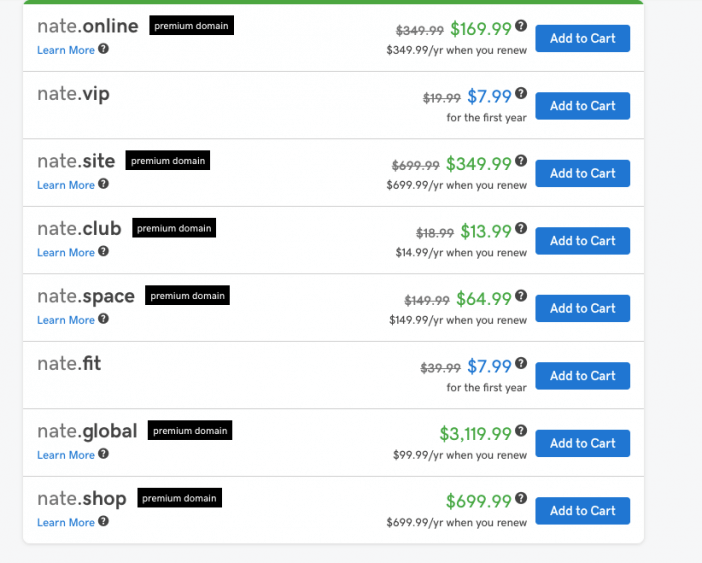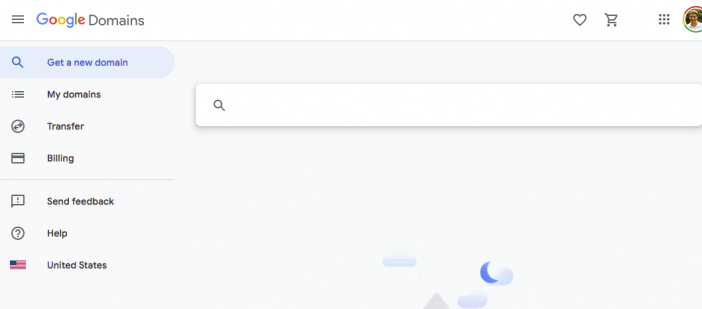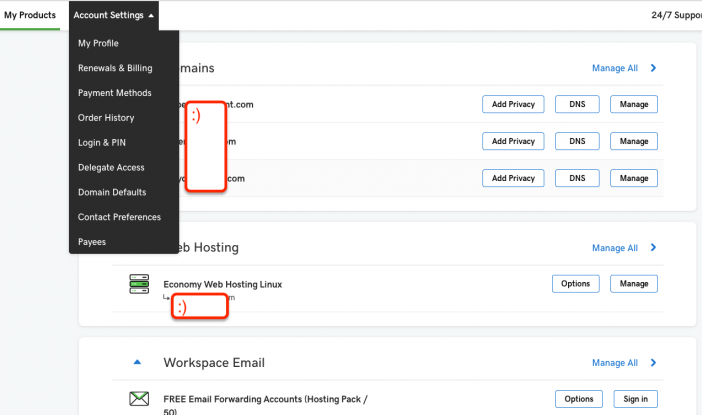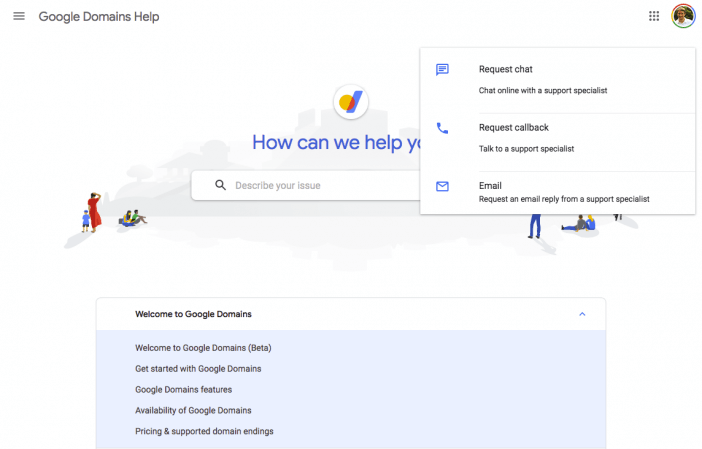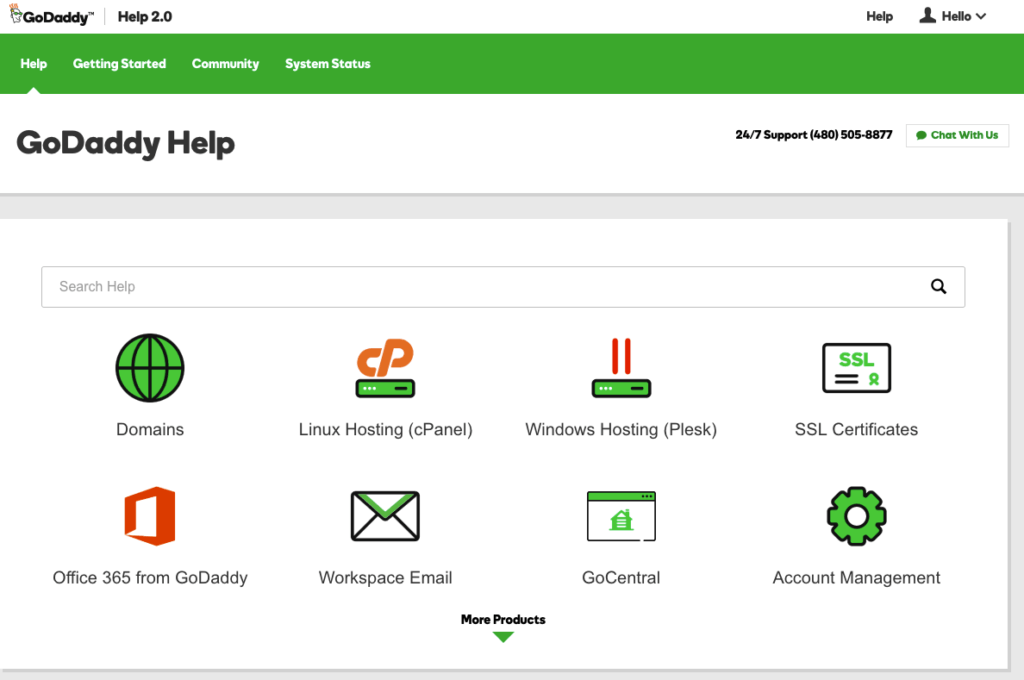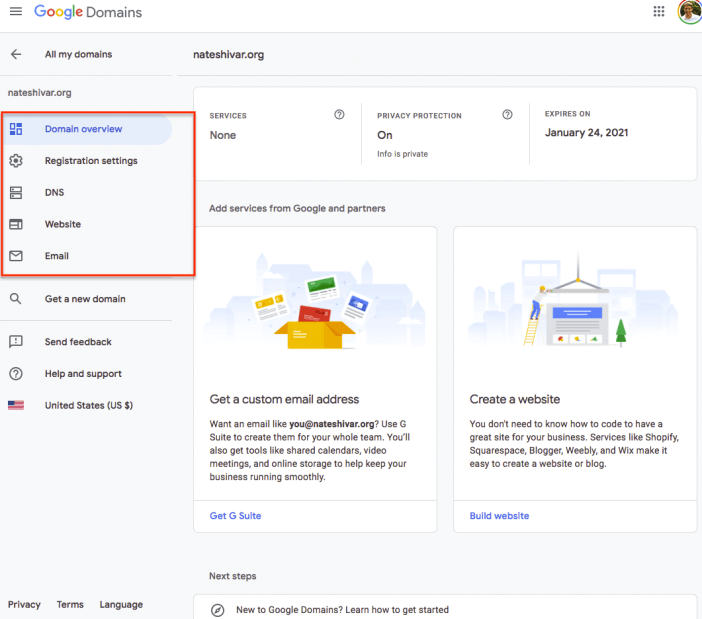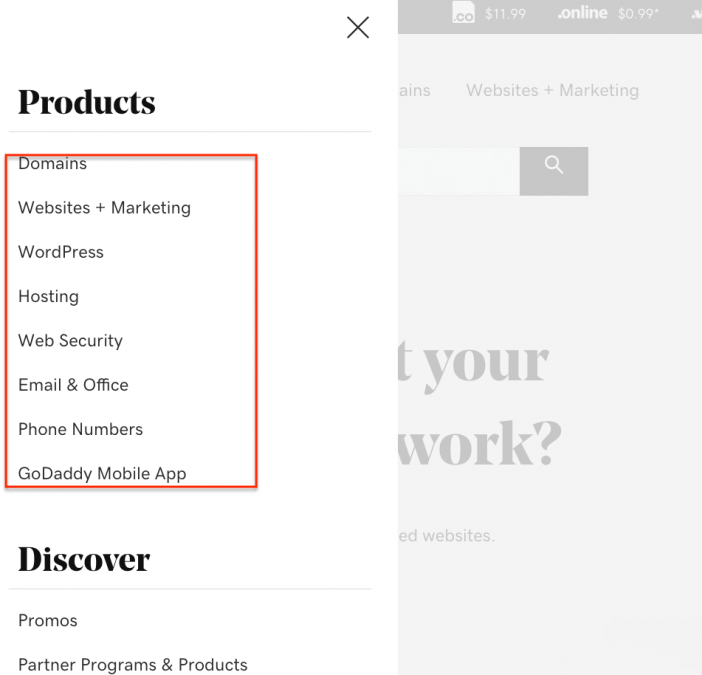Google Domains and GoDaddy are two of the most well-known domain name registrars on the Internet. I’ve written about both Google Domains and compared GoDaddy to Namecheap (their other big competitor). But how do they compare to each other?
Comparison Summary
| My Review | Google Domains Review | GoDaddy Review |
|---|---|---|
| My Rating | 8.5/10 | 7.5/10 |
| Promotion | None | Get A .COM For Only $11.99 |
| Cheapest Domain | $7.00 | $5.99 |
| Free DNS | ||
| Free Privacy | ||
| Learn More | Learn More |
Domain Registrars are a unique industry. Since ICANN issues all domain names, leaving Registrars mainly as bookkeepers, there is not a ton of scope to offer completely different products. At the end of the day, you simply need a domain name that you can associate with a server where your data lives.
And yet, not all domain registrars are the same (which is why you are reading this post, I’m guessing). I’ve tried dozens and have had every problem imaginable. There is no such thing as a “best” domain registrar – or even the “cheapest domain registrar.” Everybody has tradeoffs. And Google and GoDaddy are good examples of very different approaches to domain registration.
I was a Day One customer of Google Domains back at their launch, and I’ve been a customer (and consultant to customers) of GoDaddy for 10+ years.
Company Structure
For long-term projects, company structure matters really more than anything else. An investor-funded startup will have very different incentives than a publicly traded company. And a product that directly makes a profit will be treated differently than a product that complements a company’s main profit center.
Google and GoDaddy are very well-known brands but they are very different companies in regards to domains.
GoDaddy and Google are both publicly traded companies. They both answer to their shareholder’s short and long-term demands for profit.
GoDaddy was founded as a domain registrar. Domains are their thing. Now, they expanded to be an online business services company in recent years. GoDaddy Domain products are now part of their profit puzzle. For GoDaddy, domains are still their “thing” but they are increasingly a loss-leader to sell other products such as GoCentral website builder, GoDaddy web hosting, bookkeeping, and email.
GoDaddy wants you to buy a domain, because they know that once you buy, then you’ll buy other stuff and probably stick around.
Google is an advertising company – they are not a domain registration service first. They make their money selling extremely targeted ads based on data that no one else has. Domains are absolutely not their “thing”. However, Google does want and need your loyalty and your data more than anything in the world. They also need websites to be on the open Web.
The biggest loss for Google is for you to run your business off Facebook and Instagram while never logging into Google. Now, recently Google has started making money off Enterprise & Business Services via their Cloud and G Workplace services. But that’s a compliment to their data need.
Google wants you to buy a domain so that you are, at minimum, logged into Google with an independent website that they can index and that you’ll probably run ads to. Additionally, if you buy a domain from Google, you might buy Google Workplace for your business.
The Upside: You can get a good deal from both these companies. GoDaddy will run crazy discounts just to get you to buy. Google wants everything to be simple and easy.
The Downside: Your actual domain is not a huge concern for either company. GoDaddy only cares about your domain in so far as you stick around and buy stuff. And Google isn’t really sure if they want to do domains. In fact, Google Domains went through 5 Years of “beta”. In other words, it’s only just become a “full product” that Google still might shut down any day without advance notice (a habit of theirs).
The Alternatives: If you read those and thought “hmm, well those don’t sound that great either” – well, you might want to check out:
Porkbun is a great independent company with excellent support and Hover has excellent usability and Namecheap has excellent long-term pricing and solid complementary products.
If you really like the upsides of Google & GoDaddy, then let’s look at how they play out across other factors.
Domain Pricing
Google Domains
Google Domains has a flat rate for domains with no discounts or promos. Their renewal (and upfront) purchase price is slightly higher than some domain registrars, but also not too far out of line to be an issue. Google Domains pricing is simple and transparent.
| Domain Ext. | Registration | Renewal | Transfer |
|---|---|---|---|
| .com | $12.00/yr. | $12.00/yr. | $12.00/yr. |
| .net | $12.00/yr. | $12.00/yr. | $12.00/yr. |
| .org | $12.00/yr. | $12.00/yr. | $12.00/yr. |
| .biz | $15.00/yr. | $15.00/yr. | $20.00/yr. |
| .co | $30.00/yr. | $30.00/yr. | $30.00/yr. |
GoDaddy
GoDaddy is a bit different. Their renewal pricing is higher than most direct competitors like Namecheap and Hover, but they run deeper 1-year discounts than any registrar that I’ve ever used.
| Domain Ext. | Registration | Renewal | Transfer |
|---|---|---|---|
| .com | $11.99/yr. | $19.99/yr. | $9.99/yr. |
| .net | $16.99/yr. | $22.99/yr. | $21.99/yr. |
| .org | $9.99/yr. | $20.99/yr. | $20.99/yr. |
| .biz | $11.99/yr. | $26.99/yr. | $26.99/yr. |
| .co | $11.99/yr. | $37.99/yr. | $37.99/yr. |
GoDaddy also has a membership program for people who own a lot of domains. It’s an annual fee, but then you can renew hundreds of domains at excellent long-term pricing.
If you plan on keeping your domain for more than ~2 years, then you might as well go with Google Domains for pricing.
If you want to save a bit of money right now, then you should take advantage of GoDaddy’s current discount. And if you are really into saving money, you can grab GoDaddy’s discount and simply transfer your domain elsewhere at the end of your term.
WINNER: GoDaddy
Domain Selection
Ever since the great ICANN domain name gold rush, vanity TLDs (top-level domains) have become more and more common. No TLD will ever displace .com and .org but if domain names for your industry are crowded, then a niche TLD or domain extension might be worth it.
But you can’t buy one from every registrar.
Fortunately, both GoDaddy and Google have fairly expansive lists for common TLDs. However, for sheer selection, Google cannot come near GoDaddy (especially when it comes to Premium domains and Auctions). Here’s Google:
Here’s GoDaddy:
As of 2021, GoDaddy has more than 497 TLDs to choose from compared to Google’s 274.
This is not a huge issue (since you can just check each), but if you are planning on buying additional vanity or brand domains, the selection is something to keep in mind.
WINNER: GoDaddy
Usability
You probably won’t be actively managing domains day in and day out. So on one hand, domain name management is not a huge factor. However, when you do have to manage multiple domain purchases…you *really* need to manage them. So on the other hand, domain name management is pretty critical.
Settings should be clear. Interfaces should have a good design.
On this point, Google Domains shines…almost to a fault.
Google Domains has nothing to upsell or resell or push, so the interface is minimalist. The product has Google’s Material Design aesthetic with clear settings and straightforward interfaces.
GoDaddy in contrast…has a bit of a reputation here.
While they have dramatically improved since 2013, GoDaddy’s interfaces are still quite maddening. Once you figure them out, everything is good. But at the start, it’s hard to find complex settings (like the ones you might need to set up Google Workspace Email). At every turn, they have some product to sell (Premium DNS!). And settings that they don’t want you to use (like the Authorization Code to leave) are straight up buried.
Now – that’s not necessarily a big deal. I have a client who has used GoDaddy for 15 years and has needed to change a setting exactly once that whole time. The other time…I got to do it. GoDaddy works, it’s cheap, and it’s a known big brand.
But if you are actively managing domains – you should go with Google Domains or another registrar like Hover that focuses on clean user experience.
WINNER: Google Domains
Customer Support
Customer support for domains. It’s one of those factors that you don’t really need until you **really** need it.
Google Domains does provide some support in English, Spanish, French, and Japanese. They offer phone, chat, and email 24 hours a day. It’s pretty standard support.
GoDaddy has the full gamut of support via phone, email, chat, knowledgebase, etc. They offer localized support depending on which GoDaddy subsidiary you’re with.
Like all customer support, it’s a bit anecdotal but my experience with GoDaddy has been fine with the expected mega-corp annoyances. Google has also been fine, but they definitely still seem to be building their team. Even as recently as a year ago, they only offered support for business hours in English.
WINNER: GoDaddy
Complementary Products
Domains are not stand-alone products. By themselves, domains can do very little other than point somewhere.
I am a fan of buying domains from a domain registrar and purchasing complementary products elsewhere (e.g. hosting, email, storage, etc). I do it to save a bit of money and build diversity into my setups (ie, if company X has issues, it’s easier to move if company Y is still fine).
However, that setup is also a bit of a pain. I don’t wholeheartedly recommend it. And for those who want a convenient setup with one good company handling hosting, email, domains, etc – it’s important to have one that has all those complementary products.
Like customer support, Google Domains does not really have a ton of complementary products. Google Domains will directly integrate with Google Sites (Google’s free website builder), Blogger (Google’s free blog service), and Google Workspace (Google’s business email & storage product). Google Domains also bundles WHOIS domain privacy (ie, private registration) with each domain along with a DNS server and domain forwarding.
However, Google does not provide a traditional shared hosting plan and its website builders are lacking. They also don’t bundle typical complementary products like a free SSL certificate.
GoDaddy’s complementary products are their “thing” – they have everything from every flavor of hosting (including WordPress, Shared, Reseller, VPS, etc) to email to storage to accounting to security solutions to website builders and payment processing.
If you are looking for a company to have everything with for convenience, then GoDaddy “wins” hands down.
If you are looking for a company that has integration with email but will integrate your domain with 3rd parties (ie, a web host with a WordPress website), then Google Domains is solid.
WINNER: GoDaddy
Next Steps
Like I’ve said in all my reviews and comparisons, there is no such thing as a “best” anything. There is only the best for you based on your preferences, needs, and resources.
If you want a simple place to register your new domain and integrate with Google Apps, then Google Domains is a fit for you.
If you want a registrar with discounts and lots of complementary products, then GoDaddy is a fit for you.
And if you still aren’t sure, then read my Best Domain Name Registrar Guide.
